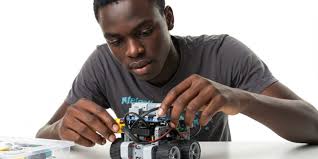By AJIBOYE DEMILADE SAMUEL, SOUTHWEST NIGERIA
The Federal Government has begun integrating artificial intelligence (AI) and robotics into its poverty reduction programmes, aiming to expand social safety nets and improve targeting of vulnerable households. Coordinated by the Ministry of Humanitarian Affairs and Poverty Alleviation, the initiative has increased the national social register from 13 million to 19.7 million individuals through AI-powered identification systems that combine satellite mapping, telecom data, and digital surveys.
Government data shows that nearly 15 million households are currently benefiting from conditional cash transfers, with each receiving ₦75,000 under the scheme. A recent review revealed that 82 percent of beneficiary households reported improved food security, 52 percent were able to pay school fees, while 18 percent invested in small businesses using the support. Officials say the deployment of AI will enhance transparency, cut leakages, and ensure that assistance reaches households most in need.
Authorities have also hinted at broader applications of robotics and AI beyond welfare delivery, with plans to introduce the technologies in agriculture, healthcare, and small-scale industry. They described AI as a vital tool for fostering economic inclusion and building resilience among vulnerable populations. The government insists the new model represents a shift from manual processes to a data-driven system that offers greater efficiency and accountability.
Experts, however, caution that infrastructure gaps, weak internet penetration, and low digital literacy could slow implementation. Concerns also linger over sustainability, with analysts urging consistent funding and long-term planning to keep the programmes effective beyond political cycles. Despite the challenges, Nigeria’s adoption of AI and robotics for poverty alleviation places it among the few African nations experimenting with technology-driven welfare systems
